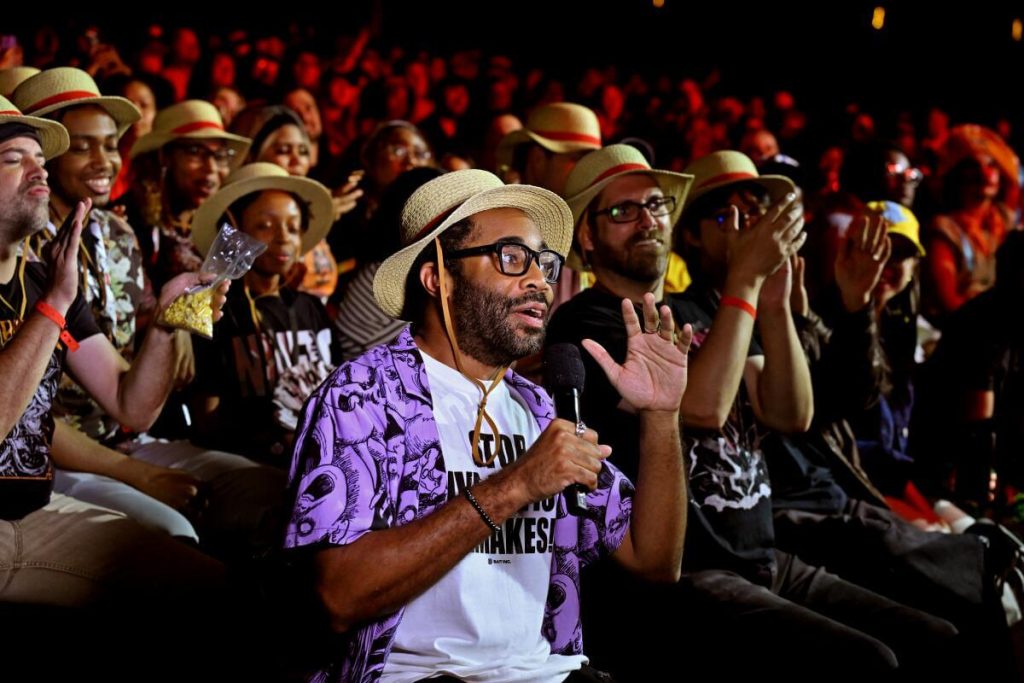World News
Navigating the High Seas: Matt Owens’ Departure from Netflix’s ‘One Piece’ and Its Implications
Introduction
In the ever-evolving world of television production, the mental and emotional well-being of those behind the scenes is often overlooked. A recent and deeply human moment in the industry came when Matt Owens, the co-showrunner of Netflix’s live-action adaptation of One Piece, announced he would be stepping away from the project to focus on his mental health. This move highlights not just the pressures of overseeing a global franchise, but also the growing conversation around mental wellness in high-stress creative industries. Owens’ decision has sparked dialogue across fan communities and entertainment circles alike, reminding everyone that even dream jobs can come with unseen burdens.
Matt Owens’ Journey with ‘One Piece’
Matt Owens’ involvement with One Piece wasn’t just a professional milestone—it was a deeply personal passion. A lifelong fan of the iconic manga created by Eiichiro Oda, Owens brought not only technical expertise to the table but also a fan’s reverence and emotional connection to the source material. Over six years, he helped shape the vision, tone, and direction of the live-action adaptation, balancing faithfulness to the beloved story with the demands of a modern, global audience.
He often expressed how much of a dream-come-true the opportunity was, and his hands-on role in casting, writing, and shaping the overall aesthetic of the series made him a central figure in the project. Under his creative guidance, the show not only met fans’ expectations but managed to bridge the gap between long-time followers of the manga and newcomers to the One Piece universe. His efforts were widely praised for capturing the heart of Oda’s work without losing its quirky, heartfelt spirit.

The Challenges of Adapting a Beloved Manga
Transforming One Piece into a live-action series was no small feat. The manga is one of the most expansive, emotionally layered, and tonally unique stories in modern pop culture. With hundreds of characters, distinct arcs, and a world that spans fantastical islands, talking animals, pirates, and supernatural elements, even seasoned showrunners would have found the adaptation process daunting.
For Owens, the challenge wasn’t just about adapting storylines—it was about translating emotion, humor, and legacy into a new medium without alienating the fanbase. Staying true to the manga’s themes while adapting it for a diverse and global audience required incredible creative agility and deep respect for the material. Every decision, from set design to fight choreography, demanded compromise, innovation, and precision.
The first season’s release proved that a thoughtful, passionate approach could satisfy both purists and newcomers. Still, the weight of maintaining that success—and preparing for future seasons—brought its own set of pressures. Working at the intersection of fan expectation and corporate ambition, Owens navigated a creative tightrope that eventually took a toll on his mental health.
The Importance of Mental Health in High-Pressure Industries
Owens’ departure due to mental health concerns is a powerful statement in an industry that often glamorizes overwork. Entertainment production is notoriously high-pressure, with long hours, tight deadlines, and intense scrutiny. Add to that the global expectations tied to a cultural juggernaut like One Piece, and the stress multiplies. While working on the project was something Owens called a dream, he also admitted that it had taken a significant toll on his well-being.
By stepping back, he made an important and commendable choice: to put health before ambition. In doing so, he joined a growing number of creatives who are reshaping how mental health is discussed and prioritized in film and television. This movement reflects a broader societal shift toward self-care and sustainability in high-performing fields. Owens’ transparency has not only humanized him to fans but also empowered others in similar roles to reevaluate their own boundaries and needs.
His decision reinforces that strength isn’t just about pushing through pressure—it’s also about knowing when to pause and heal. In a culture that often equates success with exhaustion, Owens has offered a powerful counter-narrative, one that values balance, vulnerability, and long-term well-being.

The Future of Netflix’s ‘One Piece’
Although Owens is stepping away from the show, the future of Netflix’s One Piece remains on track. Joe Tracz, who joined as co-showrunner in April 2024, will continue to oversee the creative direction moving forward. Tracz brings a wealth of experience in adapting literary works for screen, having previously worked on projects like A Series of Unfortunate Events and Percy Jackson & the Olympians. His leadership promises to maintain the series’ momentum while honoring the foundation Owens helped build.
Season two has already wrapped filming, and scripts for season three are ready, awaiting formal greenlighting. The continuation of the show under a new guiding hand suggests a stable and promising trajectory. Still, fans will undoubtedly feel Owens’ absence, especially given how deeply his voice and vision were embedded in the first season.
Importantly, the team behind One Piece remains committed to preserving the heart of the series. Eiichiro Oda himself has been closely involved in the adaptation process, acting as both a guiding figure and a creative consultant. This collaborative spirit ensures that even as leadership changes, the essence of One Piece—its humor, heart, and adventurous spirit—remains intact.
Los Angeles Lakers x Usopp One Piece The Straw Hat Pirates Hoodie – Black
Conclusion
Matt Owens’ decision to step back from Netflix’s One Piece is more than just a change in production leadership—it’s a moment that encapsulates the intersection of passion, pressure, and personal well-being. His journey with the series will be remembered as one of dedication, artistry, and heartfelt fandom. The work he has done has not only redefined what live-action anime adaptations can achieve but also opened up essential conversations about mental health in the entertainment industry.
As One Piece continues its voyage with new leadership, it does so with the legacy of Owens’ contributions deeply etched into its course. His courage in prioritizing mental health sets a meaningful example for creators everywhere, reinforcing that the pursuit of art should never come at the cost of one’s own peace of mind. In the end, both fans and the industry at large are better for his honesty, his work, and his humanity.
Los Angeles Lakers x Tony Tony Chopper One Piece The Straw Hat Pirates Hoodie
From toplineapparelstore

